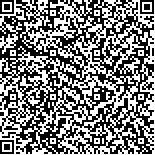| 引用本文: | 王琳,王静,涂杰霞,司果,姜琪,任雪松,杨英,柯英,蒋正方.新型冠状病毒肺炎患者的治疗及不良反应监护[J].中国现代应用药学,2020,37(5):530-535. |
| WANG Lin,WANG Jing,TU Jiexia,SI Guo,JIANG Qi,REN Xuesong,YANG Ying,KE Ying,JIANG Zhengfang.Treatment and Adverse Reaction Monitoring of Patients with COVID-19[J].Chin J Mod Appl Pharm(中国现代应用药学),2020,37(5):530-535. |
|
| |
|
|
| 本文已被:浏览 3383次 下载 1257次 |

码上扫一扫! |
|
|
| 新型冠状病毒肺炎患者的治疗及不良反应监护 |
|
王琳1, 王静1, 涂杰霞1, 司果2, 姜琪3, 任雪松1, 杨英1, 柯英1, 蒋正方4
|
|
1.四川绵阳四0四医院药学部, 四川 绵阳 621000;2.四川绵阳四0四医院感染科, 四川 绵阳 621000;3.四川绵阳四0四医院呼吸科, 四川 绵阳 621000;4.四川绵阳四0四医院神经外科, 四川 绵阳 621000
|
|
| 摘要: |
| 目的 探讨新型冠状病毒肺炎患者药物治疗与药物不良反应监护。方法 隔离收治明确诊断的15例新型冠状病毒感染的肺炎患者,分轻型、普通型、重型及危重型,使用重组人干扰素α-2a、洛匹那韦/利托那韦片、盐酸阿比多尔片、磷酸氯喹、利巴韦林注射液等抗病毒药物治疗,联合抗病毒用药≤3种,同时进行对症支持治疗,在药物治疗过程中实施药学监护,及时发现药物不良反应并对症处理。结果 截至2020年3月5日,治愈出院患者9例,在院患者6例,3例患者临床症状及胸部CT均好转,核酸检测为阳性,1例重型患者转为普通型,2例危重型患者转为重型;治疗过程中11例患者出现不同症状、不同程度的不良反应,不良反应发生率达73.33%,8例患者出现消化系统症状,2例患者出现皮疹伴瘙痒,1例患者治疗过程中肝酶轻微升高,根据国家不良反应监测中心分级,2例为新的不良反应,9例为一般的不良反应。结论 目前没有经过临床验证有效的治疗方法治疗新型冠状病毒肺炎,在有限的诊疗方案推荐下需要摸索相关的药物治疗,包括药物选择、用法用量及疗程,药物在临床治疗时需进行不良反应监护,及时发现并对症处理,避免因药物引起的机体损害。 |
| 关键词: 新型冠状病毒肺炎 药物治疗 不良反应监护 |
| DOI:10.13748/j.cnki.issn1007-7693.2020.05.003 |
| 分类号:R969.4 |
| 基金项目:四川省基层卫生事业发展中心项目(SWFZ19-Y-40);绵阳市科技局应急科研项目(2020YJKY013) |
|
| Treatment and Adverse Reaction Monitoring of Patients with COVID-19 |
|
WANG Lin1, WANG Jing1, TU Jiexia1, SI Guo2, JIANG Qi3, REN Xuesong1, YANG Ying1, KE Ying1, JIANG Zhengfang4
|
|
1.Sichuan Mianyang 404 Hospital, Department of Pharmacy, Mianyang 621000, China;2.Sichuan Mianyang 404 Hospital, Department of Infectious Diseases, Mianyang 621000, China;3.Sichuan Mianyang 404 Hospital, Department of Respiratory Medicine, Mianyang 621000, China;4.Sichuan Mianyang 404 Hospital, Department of Neurosurgery, Mianyang 621000, China
|
| Abstract: |
| OBJECTIVE To explore the drug treatment and pharmaceutical care of patients with COVID-19. METHODS The 15 patients with COVID-19 were isolated and treated, who were divided into mild type, normal type, severe type and critical type. Antiviral drugs such as recombinant human interferon α-2a, lopinavir/ritonavir tablets, abidol hydrochloride tablets, chloroquine phosphate and ribavirin injection were used, and no more than 3 kinds of antiviral drugs were used. Pharmaceutical care was carried out in the course of drug treatment. Monitor the adverse reactions during treatment and give symptomatic treatment in time. RESULTS By March 5, 2020, 9 patients were cured, 6 patients were treated in hospital, 3 patients’ clinical symptoms and CT were improved, but nucleic acid test was positive, 1 severe patient turned to normal type, 2 critically ill patients changed to severe type. During the treatment, 11 patients had different symptoms and degrees of adverse reactions, the incidence of adverse reactions was 73.33%, 8 patients had digestive system symptoms, 2 patients developed rash with pruritus, 1 patient slightly increased liver enzymes during treatment. According to the classification of the National Adverse Reaction Monitoring Center, 2 cases were new adverse reactions and 9 cases were general adverse reactions. CONCLUSION At present, there is no clinically proven effective treatment for novel coronaviru. Under the limited recommendations of treatment, it is necessary to explore the relevant drug treatment, including drug selection, drug usage and dosage, and drug treatment course. At the same time, adverse reaction monitoring, timely detection and symptomatic treatment are needed to avoid damage caused by drugs. |
| Key words: COVID-19 drug therapy adverse reactions monitoring |
|
|
|
|
